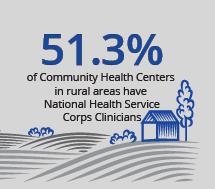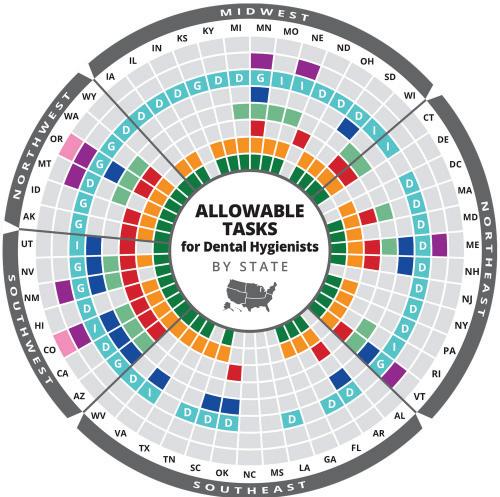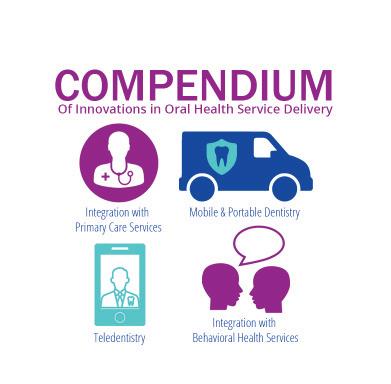
7 minute read
HWRC Research Studies
from HWRCs' Annual Report
by UAlbany
This project seeks to understand which behavioral health services primary care physicians currently provide for their clients and how often they do so. - Behaviorial Health Workforce Research Center Year in Review
Advertisement

Characteristics of Physician Assistant Students Planning to Work in Primary
Care: The purpose of this study was to identify the characteristics of matriculating PA students planning to enter primary care specialties and compare them with students planning on entering other specialties. - University of Washington Center for Health
Workforce Studies


State Incentive Programs that Encourage Allied Health
Professionals to Provide Care for Rural and Underserved
Populations: This study describes allied health incentive programs at the state level as described during 30 semi-structured phone interviews with key informants from 27 states and information found online. - University of Washington Center for
Health Workforce Studies
The Role of the National Health Service Corps Clinicians in Enhancing Staffi ng and Patient Care Capacity in Community
Health Centers: This study helps validate the eff ectiveness of NHSC loan repayment and scholarship incentives as a recruitment strategy and to inform policies on the impact of NHSC on CHCs’ patient care capacity. - GW Health Workforce Research Center

Practice Patterns of Postgraduate Dental Residency Completers from Select Long-Term
HRSA-Funded Primary
Dental Care Training
Programs: This report assesses the impacts of HRSA’s postgraduate dental training programs on current practice patterns of ‘completers’ of these programs and on improving the capacity of dentists to meet the needs of the underserved. - Oral Health Workforce Research Center
Primary Care Utilization in Community Health Centers?: This study examines the impact of expanded state scope of practice for nurse practitioners (NPs) and physician assistants (PAs) on primary care utilization in community health centers by NP, PA, and primary care physician. - GW Health Workforce Research Center



The Impact of Emerging Technologies on Long-Term Care and the
Health Workforce: This report assesses which emerging technologies may facilitate, replace, or enhance recruitment, training, and retention of the long-term care workforce. - UCSF Health Workforce Research Center on Long-Term Care
A National Study of the Practice Characteristics of Women in Dentistry and Potential Impacts on Access
to Care for Underserved Communities: This report evaluates the diff erences by gender of dental professionals’ practice characteristics including employment status, working hours, and practice location. - Oral Health Workforce Research Center
Certifi ed Community Behavioral Health Clinic
Workforce and Service Delivery Trends: To better understand behavioral health workforce factors and service delivery within Certifi ed Community Behavioral Health Clinics, this mixed methods study helps inform policy makers and discusses future practice recommendations. - Behavioral Health Workforce Research Center
Consumer Survey of Barriers to and Facilitators
of Access to Oral Health Services: This report evaluates factors identifi ed by consumers as impacting their access to oral health services and explores diff erences in utilization of oral health services by demographically distinct population groups. - Oral Health Workforce Research Center
Supporting the Adult Protective Services
Workforce: This study summarizes the current state of aff airs with the APS workforce, highlights eff orts being made to address their issues, and recommends actions that would further support these eff orts to improve community APS in the US. - UCSF Health Workforce Research Center on
Long-Term Care The Behavioral Health Workforce in Rural America:
Developing a National Recruitment Strategy: This report describes state incentives for behavioral health provider recruitment, particularly in rural areas. - Behavioral Health Workforce Research Center
Expanding Access to Care with Scope of Practice: The Oral Health Workforce Research Center developed an infographic that visually depicts state-level variation in Dental Hygienists’ scope of practice to help better inform policy makers and other oral health stakeholders. - Oral Health Workforce Research Center
Use of Apprenticeship to Meet Demand for Medical Assistants in
the US: This study identifi es diff erent apprenticeship models including alternative ways program administration, didactic instruction and clinical skills training are provided, and broadens information about healthcare apprenticeships’ value to employers. - University of Washington Center for Health Workforce Studies

This study examines factors that may infl uence access to MAT and to SUD treatment services, including negative perceptions associated with SUD treatment, cultural norms, and Medicaid and other insurance coverage. The study also examines state-specifi c initiatives to combat the opioid epidemic and SUDs. - Behavioral Health Workforce Research
Center

Assessing the Value of Pediatric Graduate Medical Education in Meeting State and National
Needs: This study develops outcome metrics that can be used to evaluate pediatric GME investments in producing the workforce that meets state and national health care needs. - Carolina Health Workforce Research Center
Geriatrician Roles and the Value of Geriatrics in an Evolving Healthcare
System: This study focuses on information solicited from fi eld experts in geriatrics as to how geriatrician roles are evolving as healthcare systems and organizations reorganize care in response to a changing environment. - UCSF Health Workforce Research
Center on Long-Term Care
Workforce Studies
With Primary Care Services: These case studies describe benchmark strategies used by safety net provider organizations to integrate health services delivery for patients including screening for and identifying medical, dental, and mental health conditions during health care encounters and directing referrals to appropriate clinical providers. - Oral Health Workforce Research Center
Case Studies of 6 Safety Net Organizations That Integrate Oral and Mental/Behavioral Health
The Health Workforce Delivering Evidence-Based Non-Pharmacological Pain
Management: This study compares 10 diff erent health care occupations and certifi ed practitioners in providing non-pharmacological pain management treatments to patients with chronic pain. - University of Washington Center for Health

Inequities: This cross-sectional study examines the relationship between reimbursement and behavioral health provider geographic distribution and seeks to understand how Medicare and Medicaid reimbursement for behavioral health providers may limit service delivery. - Behavioral Health Workforce Research
Center
Consumer Survey Focused on Parents’ Experiences Accessing Oral Health
Services for Their Children: This report highlights unique access barriers for specifi c high-needs children (racial/ethnic minorities, low-income parents, uninsured families, Medicaid benefi ciaries, rural individuals) or geographic regions. - Oral Health Workforce Research Center

The Distribution of Advanced Practice Nurses
Within the Psychiatric Workforce: This study examines the size and distribution of the advanced practice psychiatric nurse workforce relative to the total psychiatry workforce to determine whether nurses are predominantly working in areas with higher or lower levels of behavioral health specialists. - Behavioral Health Workforce Research Center Compendium of Innovations in Oral Health Service Delivery: This compendium summarizes best practices in innovative oral health service delivery programs drawn from over 40 case studies conducted by the OHWRC in recent years. - Oral Health Workforce Research Center
Health Workforce Training Program Evaluation
Toolkit: The Health Workforce Training Program Evaluation Toolkit is a comprehensive “program evaluation 101” resource for both new and established programs seeking to learn new evaluation strategies. - Behavioral Health Workforce Research Center
Social Work and Electronic Health Records: A New Frontier for Health
Workforce Research: This study aims to demonstrate how electronic health records data can be used as a workforce research tool to assess the scope, contributions, and value of social work, a profession still in the process of establishing its return on investment in health care. -Carolina Health Workforce Research Center
Enhancing Staffi ng In Rural Community Health Centers Can Help Improve
Behavioral Health Care: This study compares behavioral health care staffi ng and services in rural and urban community health centers. - GW Health Workforce Research Center
Offi ce Based Opioid Treatment (OBOT) - The Workforce
Treating Opioid Use Disorder: This report assesses which professionals comprise the workforce that provides MAT (medication-assisted treatment) in primary care, how OBOT teams communicate about patient care, and the behavioral components of MAT provided in primary care settings. - Carolina Health Workforce Research Center

The Respiratory Therapist Workforce in the US: Supply, Distribution, Education Pathways, and State Responses to
Emergency Surges in Demand: This brief describes the supply, distribution, education pathways, as well as COVID-19 emergency concerns about the respiratory therapist workforce capacity and examples of state approaches addressing workforce gaps. - University of Washington Center for Health
Workforce
State Health Workforce Defi cit Estimator:
The Estimator is a tool to provide state-level data to state and federal planners considering diff erent strategic approaches to ensure suffi cient heath workforce for COVID-19. - GW Health Workforce Research Center










